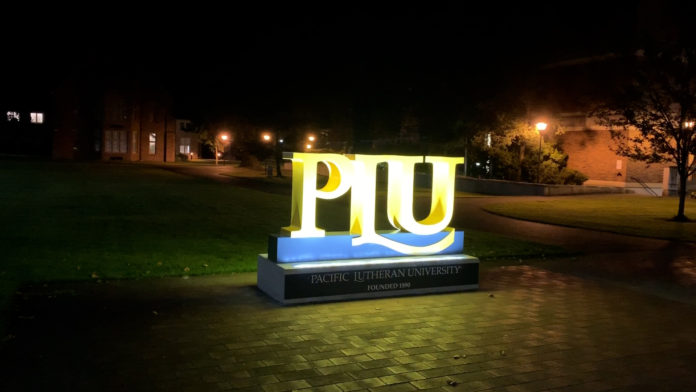Brennan LaBrie
Editor-In-Chief
A national rise in vehicular theft and prowls has hit Pacific Lutheran University (PLU) hard this school year.
Since the start of the fall semester over one month ago, six motor vehicles have been stolen from PLU’s parking lots and adjacent streets. In addition, there have been 20 prowls (thefts of property) of vehicles parked in these spaces, with catalytic converters serving as the thieves’ primary target. Seven more attempts to steal catalytic converters were thwarted by campus safety and PLU students, said Director of PLU Campus Safety Tara Simmelink.
This is a considerable increase in the frequency of car thefts from the past few years, which already witnessed a rise in car thefts on streets adjacent to PLU property.
The number of cars stolen from campus parking lots fell from seven in 2018 to three in 2019 to only one in 2020, according to the 2021-22 Annual Campus Safety Report. However, motor vehicle theft from the streets and sidewalks directly adjacent to campus property —defined as “public property” on the report — rose from 3 to 9 in that same time span.
Simmelink attributes the decrease in theft from campus parking lots to the reduced student population on PLU’s campus in 2020 due to the COVID-19 pandemic. The mass return of students to campus this fall has filled up PLU’s parking lots once again, creating a much greater opportunity for car thieves, she said.
The vehicle and catalytic converter thefts on the streets surrounding campus fits into an upward trend in such theft since the beginning of the pandemic. Catalytic converters, which reduce vehicle noise and emissions, are a prime target of car thieves due to the precious metals they contain, such as platinum and palladium. Platinum is currently valued at around $1,000 per ounce, and palladium over $2,100 per ounce, according to BusinessInsider.com. According to the National Insurance Crime Bureau (NICB), recyclers are usually willing to pay between $50 and $250 per catalytic converter.
This is just the most recent of periodic surges in catalytic converter thefts, the NICB wrote in a March 2021 press release, and is far from the last.
“It’s an opportunistic crime,” said NICB President and CEO David Glawe in the press release. “As the value of the precious metals contained within the catalytic converters continues to increase, so do the number of thefts of these devices. There is a clear connection between times of crisis, limited resources, and disruption of the supply chain that drives investors towards these precious metals.”
Campus Safety has made efforts to increase their patrols to fight this issue, Simmelink said. She also credits active bystanders on campus for their role in thwarting several thefts.
“A lot of students are reporting,” she said. “They’ll see somebody in a parking lot and they’ll report that suspicious behavior. We had some students hear the sound of an electric tool so they came out and interrupted it.”
“We also want to recognize that not everybody may feel safe calling someone out, so they can always call campus safety,” she added. Campus Safety can be reached 24 hours a day at their non-emergency line: 253-535-7441, or their emergency line: 253-535-7911.
To protect their cars against theft, Simmelink recommends that students try to park in the well lit and surveilled campus parking lots, and to regularly check on their vehicles even if they’re not actively using them.
For more information on crime prevention on campus, visit Crime Prevention Information | Campus Safety | PLU.


















